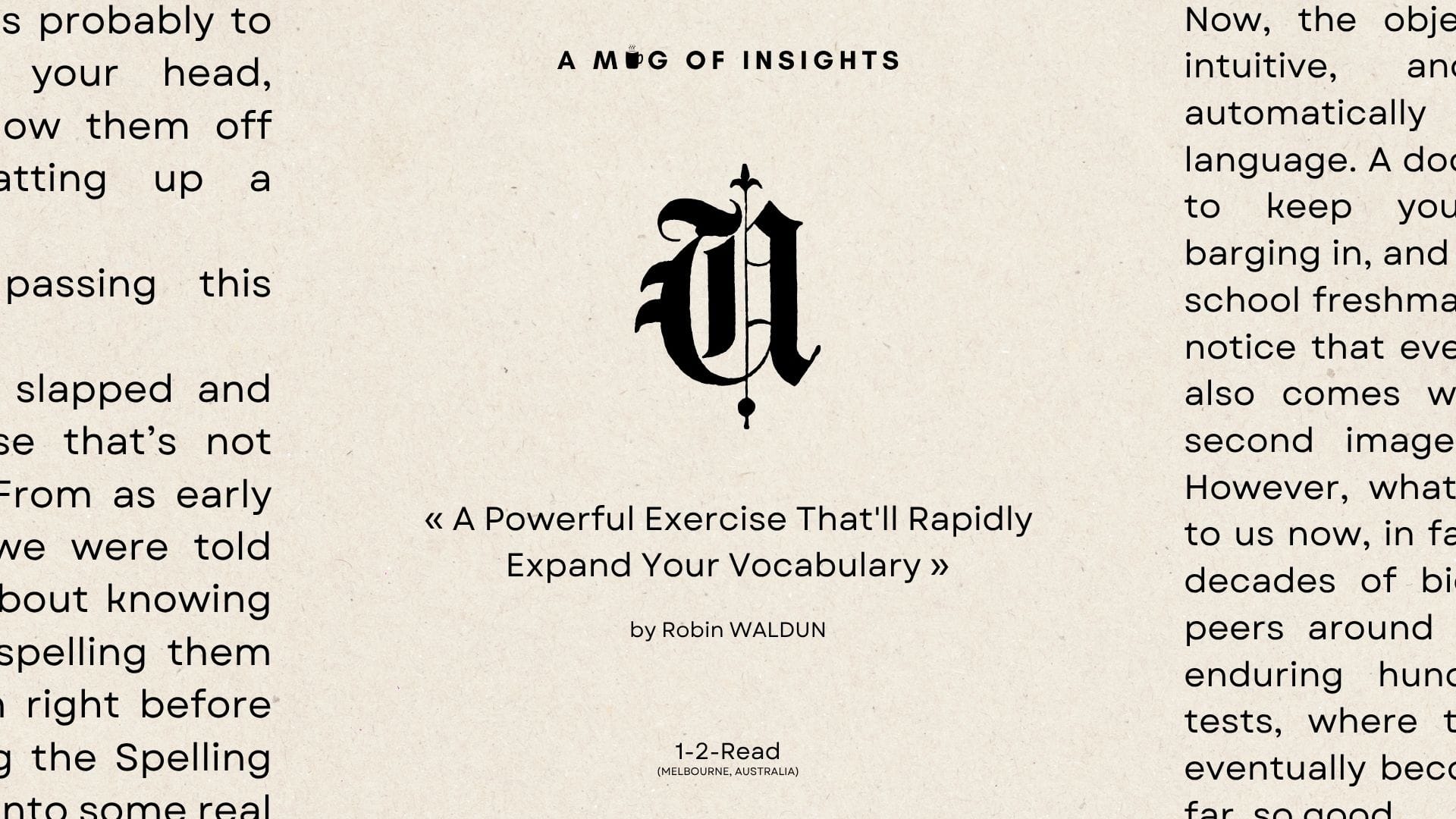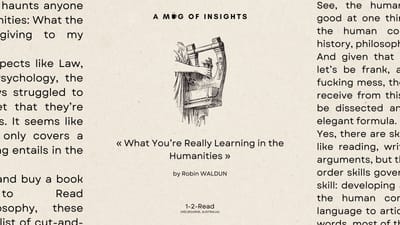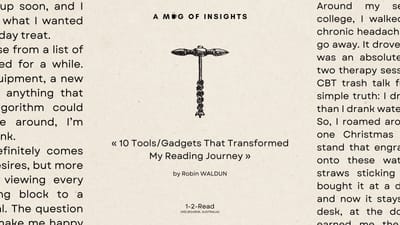A Powerful Exercise That'll Rapidly Expand Your Vocabulary

Welcome to 1-2-Read, a fortnightly letter for paid subscribers! Every issue will give you ideas and practical exercises so that you can walk away as a stronger reader/writer. Your contributions keep the lights on around here, and thank you so much for your support!
(1) The Idea: Don't Memorise New Words
Look, your first instinct is probably to drill new words into your head, memorise them and show them off next time you’re chatting up a stranger at a bar:
“Hey, how art thou passing this transitory eventide?
Chances are, you’ll get slapped and called a weirdo because that’s not how vocabulary works. From as early as elementary school, we were told that being smart is all about knowing more words. It’s about spelling them right, pronouncing them right before showing them off during the Spelling Bee. However, as we get into some real reading and writing (in university or in our professional careers), we start to realise that if these words are not pressure tested against contexts, they’re practically useless.
We still find ourselves staring at a long chapter while drawing a blank.
We still struggle to find the right words to frame an email.
And worst of all, sometimes we can’t even write a birthday card without multiple drafts.
So, in this post, let’s break down what vocabulary is, how it works and how to practice it with a powerful technique. Hopefully, by the end of the post, you’ll be able to read with no strain, write with ease and speak without staring up at the ceiling, looking for the right words.
Pass #1: Big Words = Useless
The word vocabulary is derived from the Latin roots: vocabulum (word) and vocare (to call). In other words, we’re calling out objects/concepts in the world by assigning them labels.
Now, the object part is pretty intuitive, and it happens automatically in your native language. A door is just that thing to keep your parents from barging in, and a kiss is every high school freshman’s holy grail. Also, notice that every word you know also comes with a brief, split-second imagery in your head. However, what seems so simple to us now, in fact, is a product of decades of bickering with your peers around monkey bars and enduring hundreds of spelling tests, where these associations eventually become automatic. So far, so good.
Then, the rude awakening happens around high school and early university. This marks the split into the concept territory, where a lot of the words no longer point to things we can see, but to abstract ideas. For example, can you go out there and find justice and bring it back to me in a jar? Can you fetch me a plate of society after dinner? Or, for the word concept itself, can you please wrap it in a butterfly net and frame it for me?
Subscribe to continue reading



